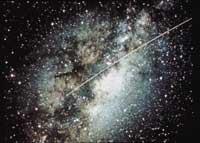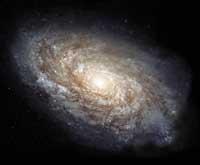Stephen Hawking dies
2018/03/14 Roa Zubia, Guillermo - Elhuyar Zientzia Iturria: Elhuyar aldizkaria

An icon of science dies: Stephen Hawking. He dies at age 76 at his home in Cambridge. He did a great job of clarifying the laws of the Universe and received eleven awards in recognition. Among the stars he researched are black holes.
A black hole is mathematically a singularity: a space in which mass density is infinite and therefore gravity acts in a very particular way. Stephen Hawking departed from Einstein's general relativity to investigate these singularities.
Black holes are absolutely dark because gravity cannot escape the light. Even around the black holes, to a limit, the light cannot escape. This is known as the limit of events. In fact, whatever comes closer than that limit will be swallowed by the black hole. But Hawking found that this is not entirely true. That at this limit there are quantum fluctuations that cause the black hole to emit a small radiation, that is, a little light. It's called Hawking radiation, and it's perhaps the most important discovery Hawking has left: black holes are not entirely black.
That's just a calculation. It was tested in laboratory in 2016, but has never been detected in a black hole. Moreover, it may not be detected.

Gai honi buruzko eduki gehiago
Elhuyarrek garatutako teknologia





